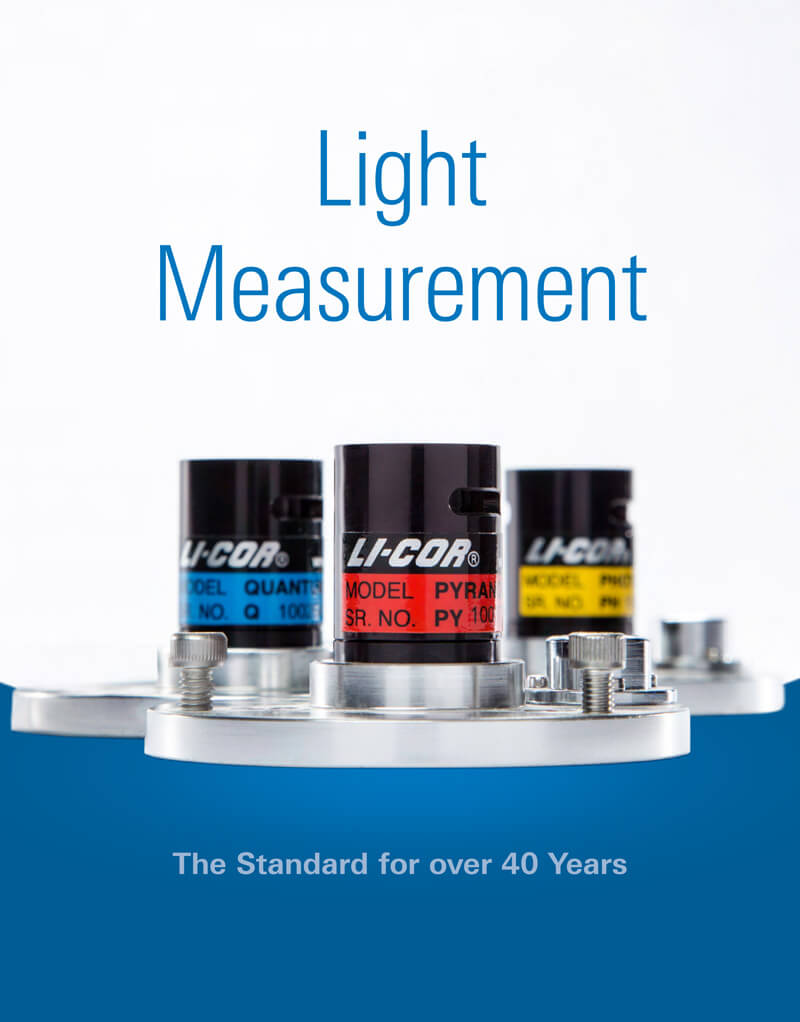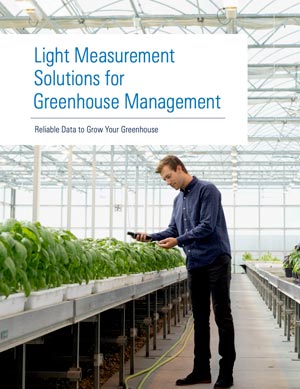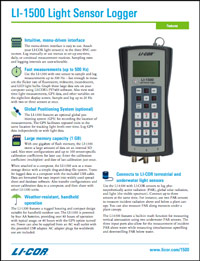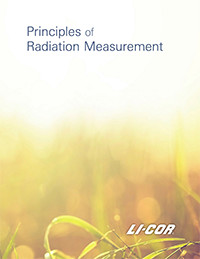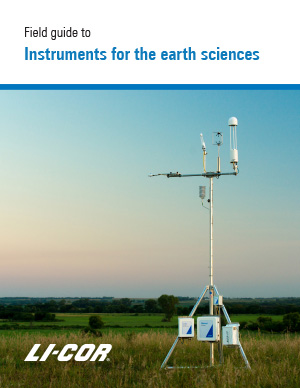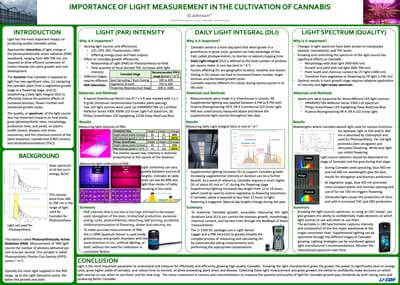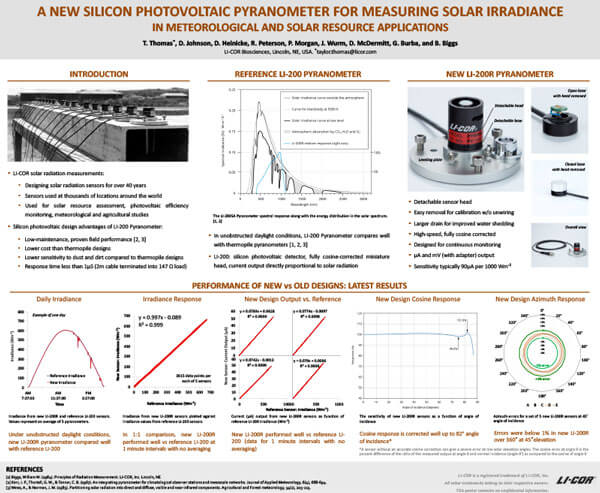Looking for manuals, software, or help with the light sensors?
Visit the technical support center for software, operating instructions, videos, and tips.
Protect your research with a LI-COR service agreement or maintenance plan.
Learn more about the benefits and coverage options we offer to keep your instruments protected.
Brochures
Application Notes
Publications
- Sellin, A., Sack, L., Õunapuu, E. and Karusion, A. (2011), Impact of light quality on leaf and shoot hydraulic properties: a case study in silver birch (Betula pendula). Plant, Cell & Environment, 34: 1079–1087. doi: 10.1111/j.1365-3040.2011.02306.x
- Rui Li, Cun-jun Li, Ying-ying Dong, Feng Liu, Ji-hua Wang, Xiao-dong Yang, Yu-chun Pan (2011), Assimilation of Remote Sensing and Crop Model for LAI Estimation Based on Ensemble Kaiman Filter. Agricultural Sciences in China, Volume 10, Issue 10, October 2011, Pages 1595-1602.
- Jenny Ask, Jan Karlsson, Lennart Persson, Per Ask, Pär Byström, and Mats Jansson (2010), Whole-lake estimates of carbon flux through algae and bacteria in benthic and pelagic habitats of clear-water lakes. Ecology, July, Vol. 90, No. 7 : 1923-1932 (doi: 10.1890/07-1855.1).
- Dirk Wiechers, Katrin Kahlen, Hartmut Stützel (2011), Evaluation of a radiosity based light model for greenhouse cucumber canopies. Agricultural and Forest Meteorology, Volume 151, Issue 7, 15 July 2011, Pages 906-915.
- Grit Mehnert, Franziska Leunert, Samuel Cirés, Klaus D. Jöhnk, Jacqueline Rücker, Brigitte Nixdorf and Claudia Wiedner (2010), Competitiveness of invasive and native cyanobacteria from temperate freshwaters under various light and temperature conditions. Journal of Plankton Res. (2010) 32 (7): 1009-1021. doi: 10.1093/plankt/fbq033.
